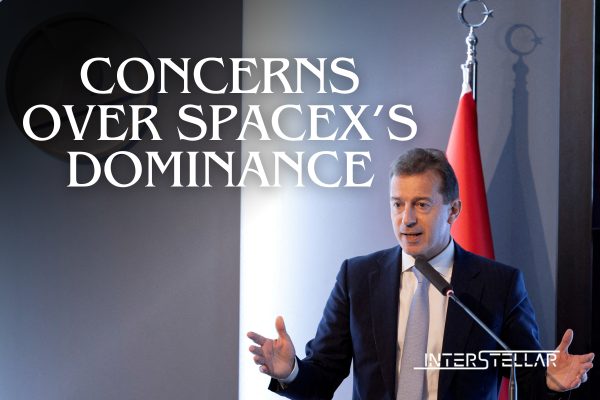Airbus CEO Raises Anti-Trust Concerns Over SpaceX’s Dominance in Space Industry
Elon Musk’s SpaceX has revolutionised the space industry with its low-cost, reusable rockets and a rapidly expanding Starlink satellite constellation. However, this dominance would raise anti-trust concerns if SpaceX operated in Europe, said Airbus CEO Guillaume Faury. Speaking at an aerospace event, Faury noted that SpaceX’s concentrated business model contrasts sharply with Europe’s more distributed approach to aerospace and space operations.
SpaceX’s Competitive Edge: A Contrast to Europe’s Aerospace Model
SpaceX’s Falcon 9 rocket has significantly lowered launch costs by introducing reusable technology, a move that allowed SpaceX to deploy nearly 7,000 Starlink satellites to date. In comparison, Europe’s flagship Ariane 6 launcher, developed by Airbus and partners, has faced delays and is expected to conduct only around 10 flights annually, far below SpaceX’s pace.
Faury highlighted SpaceX’s ability to integrate all aspects of its business, from manufacturing rockets to managing the Starlink satellite network. “In Europe, we are scattered and distributed,” Faury remarked, explaining that European anti-trust regulations prevent such concentration. Europe’s aerospace sector is structured to distribute work across countries funding the Ariane program, limiting the efficiency and pace seen with SpaceX.
Europe’s Distributed Manufacturing Model Faces Criticism
Faury noted that European aerospace companies, including Airbus, manufacture only 20% of their launch and satellite components, relying heavily on external suppliers for the remaining 80%. This contrasts with SpaceX’s approach of manufacturing 80% of its components in-house, allowing for streamlined operations and faster decision-making. “Elon Musk’s space is not pleasing anybody except Elon Musk,” said Faury, pointing out the challenges Europe faces in trying to compete with SpaceX’s consolidated business model.
Despite these challenges, Faury urged Europe to find a way to adapt if it wants to remain competitive in the global space industry. Airbus and its competitor, Thales, are already restructuring to address financial challenges, with Airbus cutting 2,500 jobs and Thales planning 1,300 job reductions.
Rising Concerns Over SpaceX’s Market Influence
While SpaceX’s success has been praised, some officials in the US, including those at NASA and the Pentagon, have voiced concerns about the heavy reliance on SpaceX for critical missions, including plans to return humans to the moon and building US spy satellite constellations. Efforts have been made to stimulate competition, yet anti-trust concerns raised by SpaceX’s competitors have largely gone unaddressed.
SpaceX supporters argue that the company’s success is a result of its bold, innovative approach to technology, taking on commercial risks that others in the industry have avoided. Faury, however, warns that unless Europe adapts, it risks being left behind in the fast-evolving global space industry.
With inputs from Reuters





